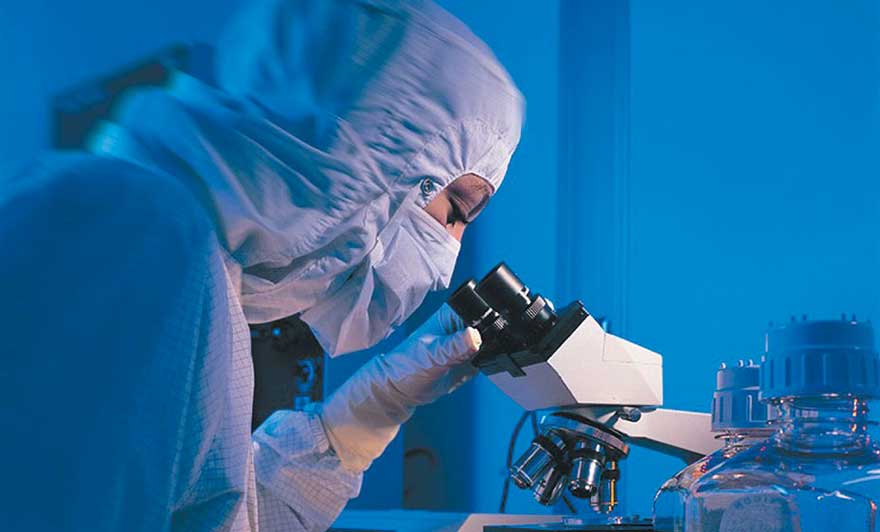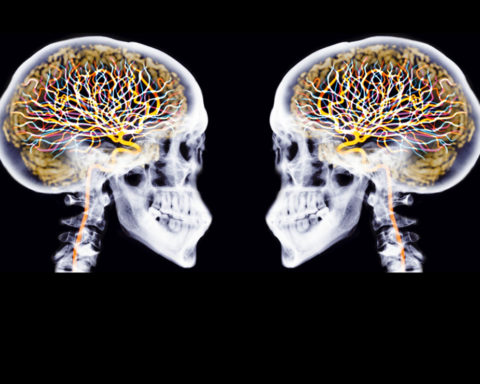The media were moved by last week's revelation of dubious connections between a renowned pulmonologist and an industrialist on a public health problem. But today, the report submitted to the AP-HP's director general is like a bomb. Of the 10,000 doctors in the hospital, some flirt with the red line and have financial ties with major pharmaceutical companies, ties that call into question their independence, their ethics and the quality of the research they conduct. This is serious, because it jeopardizes the confidence that the French may have not only in the drugs their doctors prescribe for them, but in the prescription itself.
Michel Aubier, a renowned lung specialist, had become a specialist in media interventions minimizing the health risks associated with air pollution, particularly diesel. Libération and Le Canard enchaîné revealed last week that he was paid several tens of thousands of euros a year as Total's "medical advisor". In addition to serving on the board of the Total Corporate Foundation. A blatant case of conflict of interest. A conflict of interest that poses a public health problem since this respected pulmonologist had, against all WHO recommendations, stated that diesel fuel was not carcinogenic. Worse still, in March 2014, during a peak of fine particle pollution in the Ile-de-France region, he had stated on RTL that"no risk to healthy people..."It's true that when you get 60,000 euros a year from Total, one of France's leading diesel producers, you can overlook certain scientific truths.
This case is typical, because it is brought to light. Caught with his hand in the jam jar, Professor Aubier became an unsavoury person overnight. Not Total, who can continue to bribe, "mercenaryize", and get into the good graces of doctors in order to improve the profitability of his companies. Indeed, there is no offence for this type of exercise, which we now openly learn is common practice in laboratories or industry.

Martin Hirsch, Director General of the PA-HP
The survey report of the Assistance Publique-Hôpitaux de Paris (AP-HP), France's leading hospital group, is quite eloquent in this respect. Some of the 10,000 doctors of the AP-HP present "risk situations The Board of Directors of the Canadian Institutes of Health Research (CIHR) has determined that there is a "conflict of interest" due to their ties to the pharmaceutical industry. The investigation report submitted to Martin Hirsch, the executive director of the APHP, points to a veritable catalogue of unsavoury practices. Some are well known and almost part of the medical tradition, others raise real ethical questions.
All expenses paid convention
A great classic of its kind, the invitation of doctors by labs to congresses, symposia and other conferences, usually in dream locations, all expenses paid. If these congresses are for the most part accepted as being necessary for the advancement of knowledge and science, the fact remains that there are many of them, totally organized by industry, whose speakers and moderators are chosen by industry, with all the risks of collusion that this practice entails. For Professor Didier Dreyfuss, head of the intensive care unit at the Louis-Mourier Hospital in Colombes and professor of medical ethics at the University Paris-Diderot, interviewed Tuesday on the microphone of the French National Institute of Medicine (INMD), the French Ministry of Health and the French Ministry of the Interior, this is the only way to avoid the risk of collusion.Europe 1 : " cThis is quantitatively minimal, but qualitatively dramatic.. »
Training or investment strategy?
More discreet, but no less important, is the financing of training. Mandatory, it is financed without real transparency at 98 % by the pharmaceutical industry. It is estimated that this item represents a financial volume of between 300 and 600 million euros. Medical universities and hospitals, where the interns are employed, are targeted by the pharmaceutical industry. The challenge: to create a proximity to impose their products and influence the choices of these future doctors. Between the need for information on existing treatments and molecules and an aggressive commercial strategy, is the presence of the pharmaceutical industries and their medical sales representatives regulated? More and more students are becoming alarmed by this.
Clinical trials and temptations
Another classic example of the collusion between doctors and labs is the conduct of clinical trials. According to The WorldThese activities are a significant source of income for physicians, whose expertise is remunerated by fees that are beyond their control. They are also a windfall for hospital services, most of which have created an "association" to manage the pool paid by the industry. More than 400 have been counted by the PA-HP.
The conduct of clinical trials by doctors is not in itself scandalous; in fact, it is a necessity before a new drug is put on the market. We are in a system in which it is inconceivable that there should be no public-private partnership, which is essential for the development of research. Research using public funds is not enough and partnerships with the private sector are relevant. What is more disturbing, however, is when leading medical experts become specialists in a particular drug and are, as such, paid several tens of thousands of euros by the labs, which are thus able to make good use of their expertise and perhaps their independence of judgement, or even their ethics. When your salary is generously doubled by the laboratory that orders clinical trials from you, few should be able to resist the temptation to erase certain critical aspects of their analyses. There seems to be no shortage of examples of medical luminaries who have become advertising promoters of laboratories in this way.
This is the whole problem of conflict of interest, which is nothing more than a set of conditions in which professional judgment regarding a "primary" interest, i.e. the validity of the research, its results, what it can bring to patients, can be influenced by a "secondary" interest, such as financial gain.
Measures necessary to ensure the validity of the research
The report submitted to Martin Hirsch proposes the creation of a "neutral structure", which would make it possible to maintain financial support from industry but would cut all direct links with doctors. On clinical trials, for example, a "research foundation" should eventually centralise private funding and allocate it to projects selected by the hospital. This initiative would make it possible to avoid the temptations and shifts in the ethical duty of certain doctors who are currently paid directly by the laboratories for their research or interventions, or who are part, in a more or less transparent way, of the "board" of an industrialist.
Although the practices identified in this report are in the minority, and the proportion of physicians involved in these conflicts of interest is likely to be small compared to the 10,000 physicians in PA-HP and its 38 hospitals, the fact remains that they have considerable impact on the opinion and credibility of the health industry. Professor Dreyfuss says, "As such, they have a significant impact on the opinion and credibility of the health industry. Ethically, in modern countries, conflict of interest is probably one of the greatest threats to research and its validity. ".













